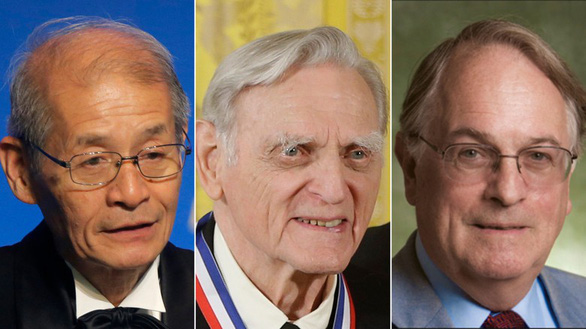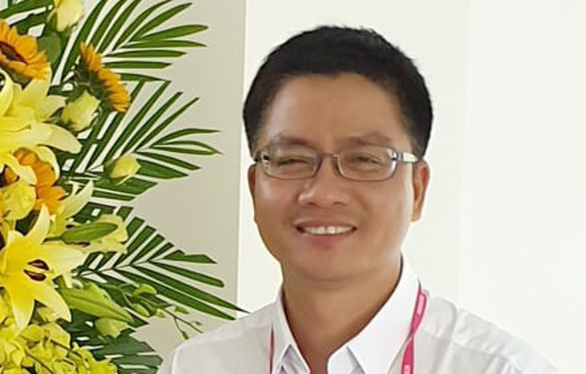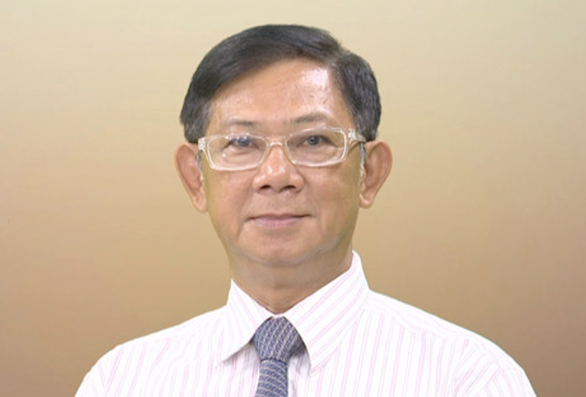

Contact
0967 432 232
info@saite.vn
Nobel Chemistry - Lithium-ion rechargeable batteries bring the world to a new technological revolution

That is John B. Goodenough, born in Germany and working at the University of Texas (USA); Stanley Whittingham, born in England and working at Binghamton University (USA); and Mr. Akira Yoshino, born in Japan, is working for Asahi Kasei Corporation and Meijo University in Nagoya (Japan). Mr. Goodenough is the oldest scientist ever to win a Nobel Prize (97 years old).
“Lithium-ion batteries have revolutionized our lives. Through their work, this year's chemistry Nobel laureates have laid the groundwork for a wireless society, free of fossil fuels."
--- Announcement of the Nobel Committee ---
The growing popularity of lithium-ion batteries over the years has led many observers to speculate that it is only a matter of time before it is only a matter of time before the Nobel Prize is awarded for achievements that have contributed to the development of this battery. Even before this year's Nobel season, there were many rumors about this.
The Guardian newspaper said that this year's chemistry Nobel can be considered a "popular" award that observers have been waiting for many years. Lithium-ion batteries have been applied to nearly every aspect of life today and are an integral part of the age of digital technology.
"This powerful and light-weight rechargeable battery is being used today in everything from mobile phones to laptops and electronic devices. It can also store a significant amount of energy from energy. wind and solar energy, opening up the potential for a fossil fuel-free society," said the Royal Swedish Academy of Sciences.
At the press conference announcing the prize on October 9, physicist and chemist Sara Snogerup Linse, chair of the Nobel Committee for Chemistry, emphasized the lightweight lithium-ion battery that the three researchers have developed. helped bring the world "access to a new technological revolution".
Quanta Magazine quoted Paul Coxon, a professor of materials science and metallurgy at the University of Cambridge, assessing that lithium-ion batteries are really the hidden "horses" of the mobile era.
"More than two-thirds of the world's population is using at least one mobile device, either a cell phone, laptop or tablet, and nearly all of them operate on rechargeable lithium-ion batteries," said Coxon speak.
Bonnie Charpentier, president of the American Chemical Society, said: "In the face of increased risks from extreme climate change, today's announcement of the prize shows more clearly the flexibility of Energy has helped create unprecedented advances in communications, transportation and other means to support essential aspects of life around the world."
Thus, up to now, there have been 111 chemistry Nobel prizes awarded to 184 authors from 1901 to 2019, of which 63 were awarded to only one person. Five women have received the Nobel Prize in chemistry.
Vietnam has not yet produced full lithium-ion batteries

Lithium batteries, especially lithium-ion batteries, are very important to modern science. This type of battery has great application in life, for phones, computers to energy storage stations.
Regardless of the fact that today's lithium-ion battery industry has grown very strongly, worth 40 billion USD, attracting tens of thousands of people to participate in research, the works awarded this year's Nobel Prize in chemistry can be said to have answered the question. best response to the will of Alfred Nobel, which is to honor valuable scientific contributions to serve humanity.
In the world, the leading group of countries and territories in terms of lithium-ion batteries are the United States, Japan, and South Korea, followed by Taiwan and China. In Vietnam, there are only a few start-ups manufacturing lithium-ion batteries on the basis of importing battery cores from abroad and assembling finished products. No enterprise in the country has a complete lithium-ion battery production line from chemical production to final battery products.
Regarding the research situation, in Ho Chi Minh City over the past 10 years, the Applied Physics and Chemistry Laboratory of Vietnam National University, Ho Chi Minh City has implemented many research projects and applications of lithium-ion batteries.
Assoc. Prof. Dr. Tran Van Man (Head of Science and Technology Department, University of Natural Sciences)
Lithium-ion battery development history

The batteries that preceded the lithium battery have existed and evolved for quite a long time: lead batteries were invented in 1859 (still used today as starter batteries in gasoline-powered cars) and nickel-cadmium batteries developed in the mid-20th century, but these batteries pollute the environment when no longer in use and are toxic to people who are in contact.
The development of lithium batteries progressed strongly in the 1970s with the results of research by scientist Stanley Whittingham, considered the world's first lithium battery maker. US oil and gas corporation ExxonMobil sensitively assessed the importance of Stanley Whittingham's research when corporate managers agreed to sponsor Stanley Whittingham's research project after only 15 minutes of listening to the project presentation.
The oil crisis that followed the war between Israel and the Arab countries in the mid-1970s was the impetus for John Goodenough to engage in research into alternative energy sources to oil.
In 1980, John Goodenough greatly increased the strength and voltage of lithium batteries by creating multi-layer lithium batteries with lithium cobalt oxide at the cathode. In 1985, Akira Yoshino succeeded in replacing pure lithium with compounds containing lithium ions, which are safer than pure lithium.
When a lithium-ion battery is charged or used, ions flow between the electrodes without reacting with the surrounding environment. The battery thus has a longer life, a larger capacity, and can be recharged hundreds of times before its performance degrades, which has led to the widespread commercialization of lithium-ion batteries in the market, which is widely used. widely used in electrical and electronic equipment.
Today, with very light, rechargeable lithium-ion batteries used many times in everything from cell phones to laptops, electric vehicles and a plethora of home electronics. Lithium-ion batteries can efficiently store renewable energy sources such as solar and wind energy, and hopefully one day humans will no longer use fossil fuels, significantly reducing the greenhouse effect. contribute to mitigating the impact of global climate change.
Dr. Nguyen Duc Nghia (former deputy director of Vietnam National University, HCMC)
Source : tuoitre.vn



